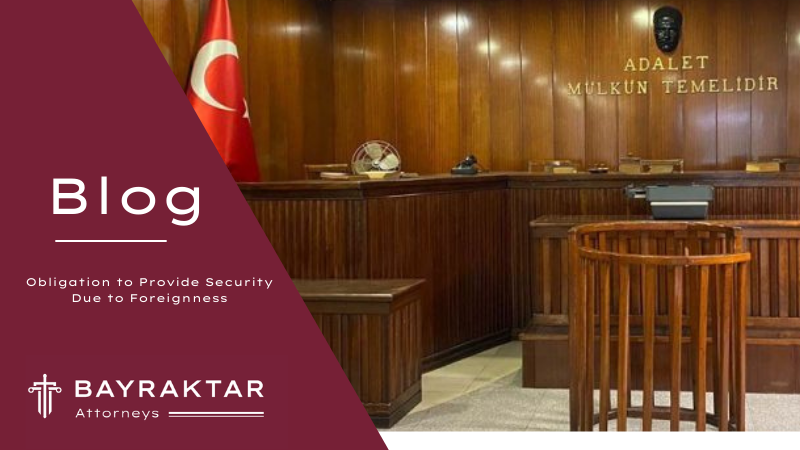
Obligation to Provide Security Due to Foreignness
The obligation to furnish security owing to foreign status is delineated in Law No. 5718 on International Private Law and Procedural Law, dated 12.12.2007.
As per the initial clause of Article 48 of the Law, “Foreign individuals, be they natural or legal entities, initiating legal proceedings, intervening in ongoing cases, or commencing enforcement procedures within Turkish jurisdictions, are mandated by the court to provide a determined security amount.
This serves to cover litigation and enforcement expenses, along with compensating the opposing party for damages.”
The subsequent section of the aforementioned article outlines provisions for exemption from security, asserting that the court may waive the requirement for the plaintiff, intervenor, or enforcer based on reciprocity.
Reciprocity is designed to secure equivalent exemption from security for Turkish citizens in the foreign plaintiff, intervenor, or enforcer’s country.
Under Turkish International Private Law, reciprocity can be established through contractual, legal, or factual means.
Contractual reciprocity is attained through bilateral or multilateral agreements between Turkey and the relevant state, stipulating exemption from security obligations.
A. Multilateral Agreements facilitating exemption from security include:
- a) Hague Convention on Civil Procedure of 1954:
Article 17 of the Convention states:
“When a national of one of the Contracting States, residing in the territory of another Contracting State, acts as a plaintiff or intervenor before the latter’s courts, whether due to foreign nationality or lack of domicile or habitual residence in that State, no security for costs or expenses, regardless of nomenclature, shall be demanded.
The same principle applies to any amount claimed from said plaintiff or intervenor to cover court expenses. Conventions between Contracting States, exempting their nationals from security requirements or contributions towards court expenses in the State of residence, shall remain effective.”
- b) European Convention on Residence:
Article 9 of the Convention states:
“Where a national of one of the Contracting Parties acts as plaintiff or intervenor before the courts of another Contracting Party and is sued for costs due to foreign nationality or absence of domicile or habitual residence in the territory of that Party, he/she shall not be required, under any circumstances, to provide security for costs.
This provision also applies to payments demanded from such plaintiff or intervenor to ensure expense coverage. Decisions wherein security, deposit, or payment is waived, pursuant to this Article or the host State’s law where the proceedings are underway, regarding costs and other expenses charged against the plaintiff or intervenor, may be executed in the territory of another Contracting Party upon application through diplomatic channels by the competent authority in the rendering State, without any fees.”
B. Bilateral Agreements
You can access the texts of bilateral agreements from this link: Bilateral Agreements Texts
In conclusion, understanding the intricacies of the obligation to provide security due to foreignness is paramount for efficient legal representation and compliance with international agreements.
At Bayraktar Attorneys, we remain committed to navigating the complexities of international law to best serve our clients’ needs. Contact us today for expert legal counsel tailored to your specific requirements.







